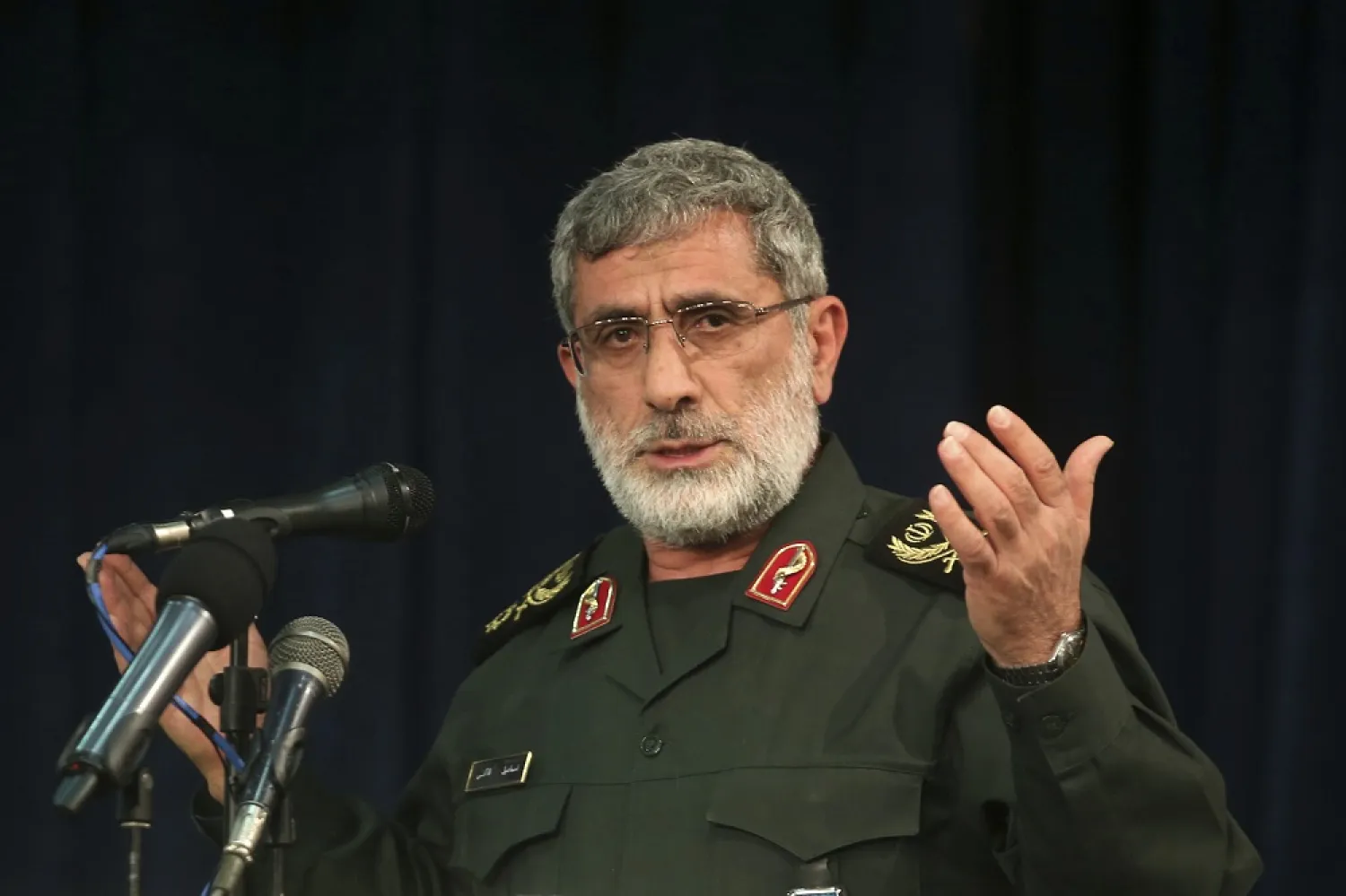The head of the Iran’s Revolutionary Guard Corps Quds Force, Esmail Ghaani, had arrived in Baghdad last Tuesday and has been meeting with a number of senior Iraqi officials dealing directly with the issue of armed factions, a well-informed source told Asharq Al-Awsat.
Ghaani and Iraqi officials discussed the truce that was announced by the militants prior to the US presidential election, the source added.
Iraqi militias backed by Iran have agreed to temporarily halt attacks targeting the American presence in Iraq, on the condition that US-led coalition troops withdraw from the country in line with a parliamentary resolution.
Last week, however, several missiles were fired at different areas in Baghdad’s Green Zone, targeting the US embassy. The attacks killed an Iraqi child and wounded others.
Major armed factions close to Iran in Iraq denied responsibility for launching such missiles and condemned the attacks.
Kataib Hezbollah, a prominent paramilitary in the Popular Mobilization Forces (PMF), described the assaults as “amateur.”
While Asaib Ahl al-Haq leader Qais Khazali denied responsibility for the attack, he confirmed that the truce with the Americans was over.
Although Ghaani’s visit to Iraq is reportedly focusing on reaching understandings with armed factions to maintain the truce despite recent violations, the Iranian commander met with Iraqi Prime Minister Mustapha al-Kadhimi and conveyed Tehran’s support for his government.
Discourse on the truce remains inconsistent, even among Shiite political blocs that are considered close to the Iran-aligned factions.
Some say that the truce was purely an Iraqi initiative taken by the factions, while others believe that it emanated from Iranian pressure.
Tehran allegedly was trying to avoid giving the Trump administration an opportunity to target Iran under the pretext of attacks led by the factions.
Some even linked the ceasefire to a meeting joining Jeanine Hennis-Plasschaert, the UN envoy to Iraq, and Abdulaziz al-Mohammadawi, the deputy head of the PMF.
Fatah Alliance politician Ghadanfar al-Batikh, in recent statements, debunked rumors of a new truce being shored up by Iranian mediation.
Even though he said that there will be no renewal of the truce, al-Batikh asserted that all parties are trying to de-esclate tensions in the country.









